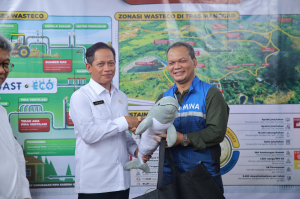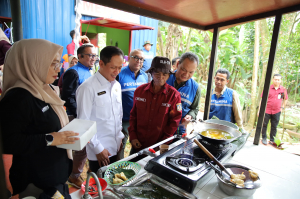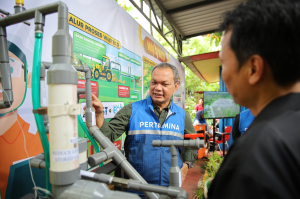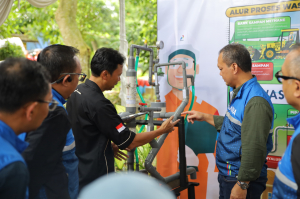15
Apr
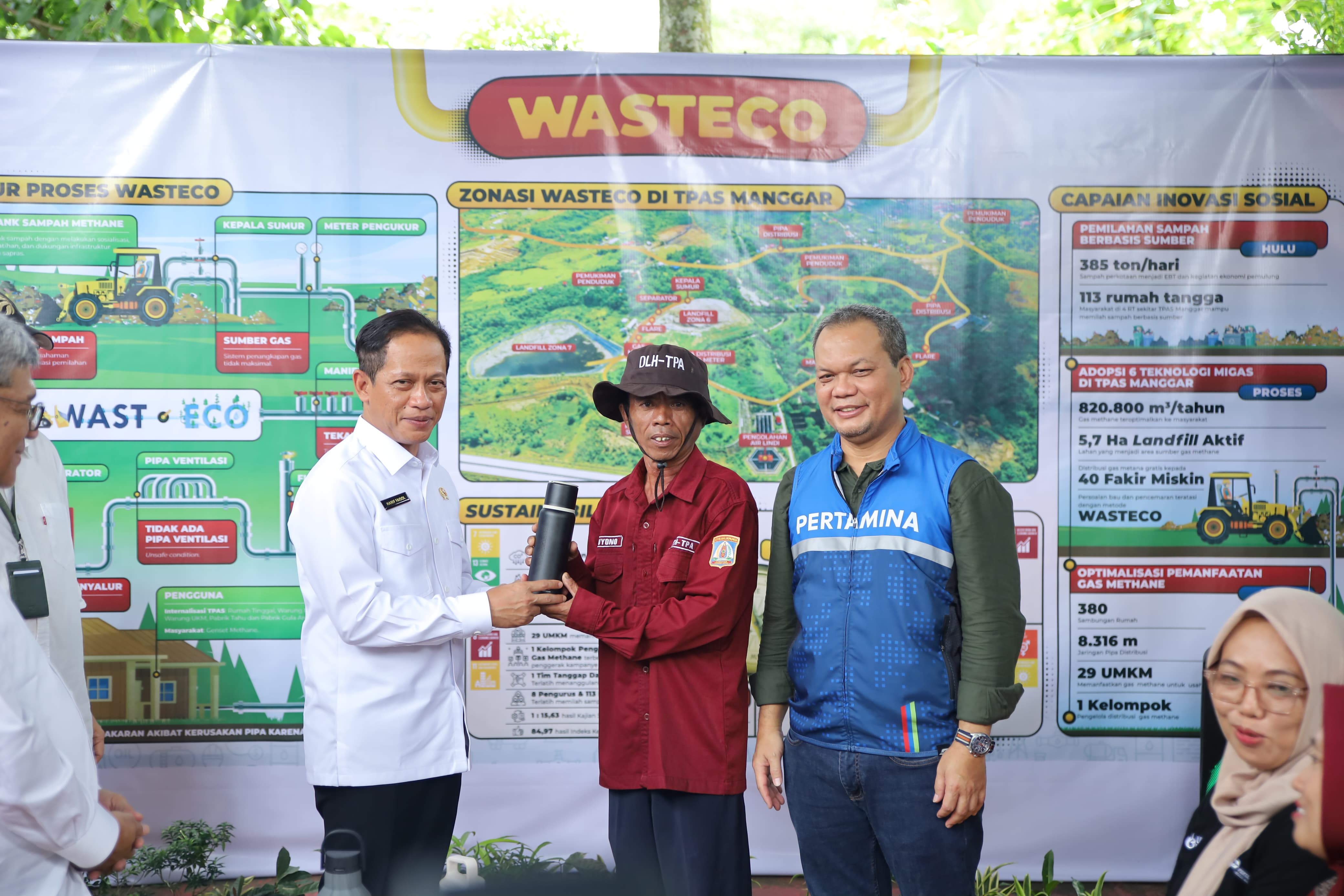
Balikpapan – The Indonesian Minister of Environment, Hanif Faisol Nurofiq, visited the Waste to Energy for Community (Wasteco) community empowerment program located at the Manggar Final Waste Processing Site/Tempat Pemrosesan Akhir Sampah (TPAS) in Balikpapan on Sunday, April 13, 2025. Also present during the visit were officials from the Ministry of Environment, the Assistant II to the Regional Secretary of East Kalimantan Province, the Mayor of Balikpapan, the Heads of the Environmental Agencies of both East Kalimantan Province and Balikpapan City, as well as the General Manager of Pertamina Hulu Mahakam (PHM) and his team.
Wasteco (Waste to Energy for Community) is a waste management program that converts waste into methane gas, which has been utilized as a new and renewable energy source to support households and MSMEs directly managed by PHM since 2021. Wasteco has successfully reduced greenhouse gas emissions by 100,651.70 tons of CO₂eq annually. This emission reduction helps decrease the risk of natural disasters, environmental degradation, and global warming impacts while supporting the government’s initiative to implement Carbon Capture and Storage (CCS) technology to reduce CO₂ emissions released into the atmosphere.
During his visit, the Minister stated that the government is targeting a 50% reduction in waste by 2025, in line with the National Medium-Term Development Plan/Rencana Pembangungan Jangka Menengah Negara (RPJMN). He also said, “The Wasteco program has great potential to address the waste problem in Balikpapan. TPAS Manggar uses the sanitary landfill method with lining and leachate systems. This Wasteco program can serve as a model for waste disposal sites throughout Indonesia.”
Balikpapan generates approximately 385 tons of waste per day, potentially producing 820,800 cubic meters of methane gas per year at TPAS Manggar. By applying renewable energy management technology, Wasteco has successfully provided 1,520 gas connections to 380 households around the site. In addition, the program supports 29 MSMEs and Waste Bank Groups with a total of 113 members by supplying methane gas as an alternative energy source for their activities.
PHM General Manager Setyo Sapto Edi stated that the Wasteco program contributes to environmental sustainability and drives the local economy. Within a year, residents around TPAS Manggar could save the equivalent of 18,240 LPG gas cylinders annually, or approximately IDR 456 million. “Another point of pride is that the Wasteco program has been replicated in Bontang and Bali and has drawn public interest to come and witness how the system works,” he said.
The Wasteco program also contributes to achieving the Sustainable Development Goals (SDGs), especially Goal 7 on Affordable and Clean Energy, Goal 8 on Decent Work and Economic Growth, and Goal 13 on Climate Action.
Meanwhile, PT Pertamina Hulu Indonesia’s Communication Relations & CID Manager, Dony Indrawan, expressed his appreciation for the Minister and his team’s visit to the Wasteco site, as it aligns with the company’s goal to expand the program’s benefits to other regions in Indonesia. “The Wasteco program has also empowered vulnerable groups, such as housewives, to engage in productive activities and generate income for their families,” he explained.
According to Dony, various food products made by MSMEs supported by the Wasteco program are now widely available to the public through both offline and online marketplaces.
“We are committed to implementing innovative and sustainable community development programs across all of the company’s operational areas so that the benefits can reach even more stakeholders,” he concluded.
PT Pertamina Hulu Mahakam (PHM) is a subsidiary of PT Pertamina Hulu Indonesia (PHI) that manages upstream oil and gas operations and business by Environmental, Social, and Governance (ESG) principles in the Mahakam Working Area in East Kalimantan. In collaboration with SKK Migas, PHM, together with other PHI subsidiaries and affiliates, runs innovative Corporate Social Responsibility programs in the areas of Economy, Education, Health, Environment, Infrastructure, and Disaster Response to support sustainable community empowerment and the achievement of the Sustainable Development Goals (SDGs).
